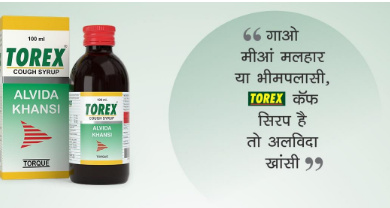How to Heal From an Injury Caused by a Car Accident
Any time you’re hurt, it’s human nature to try to rush the healing. But unlike using an ointment on a wound, there’s no way to force bones, muscles, joints, and other internal damage to recover faster.
In fact, when you do try to push your body to heal quicker than it should, you can make the injury worse. This is particularly true when the damage was caused by something as substantial as a car accident.
The force of impact that occurs when a vehicle crashes into another object, whether it was stationary or moving, can lead to significant bodily injury. You may be able to heal simple problems on your own, but you shouldn’t ignore any of your symptoms. Small issues quickly become big ones if they’re not taken care of early.
If you’re dealing with health issues caused by a motor vehicle accident, follow these steps to help your body as it attempts to heal.
1. Get Care ASAP
Another basic part of human behavior is the urge to return to our daily life as quickly as possible after an interruption. That’s why so many people skip going to the emergency room after an accident that didn’t cause — at least on the surface — any substantial injuries.
The problem with this course of action is that symptoms of damage from an accident don’t always show up immediately. Concussions, whiplash, spinal damage, muscle tears, and other common side effects from collisions can take days and sometimes weeks to appear.
When you’re seen at the urgent care clinic or emergency room, the professionals you’ll see treat car accident victims regularly. They know what to look for and can guide you on your next steps. Without early medical care, you risk your injuries worsening, taking longer to heal, and possibly becoming permanent.
The extra medical documentation can also help your case if you file a lawsuit for your injuries.
2. Go to an Expert Auto Accident Physician
Following your accident, you’ll most likely want to reach out to your family doctor for care. However, many general physicians won’t treat patients after a personal injury.
There are many reasons for this, but the two main ones are insurance- and court-related.
Doctors must bill your auto carrier, which is complicated, and once your insurance runs out (exhausts), they aren’t guaranteed payment.
In addition to this issue, a lawsuit brings the possibility that the doctor will be asked to testify. This is time-consuming, and, understandably, they don’t want to close their practice to deal with court legalities.
By using a physician well-versed in auto accidents, your recovery becomes smoother. The doctors know how to manage your injuries and which specialists to send you to, if necessary, that will treat car crash victims.
3. Follow Your Doctor’s Orders
Let’s be honest. Once again, we’re humans, so we often don’t want to listen to others who “know best.” This is particularly true when we’re frustrated because our healing takes longer than we think it should.
Recovering from an auto accident injury isn’t an easy process. Rushing it can exacerbate (worsen) the problem and increase the time your body needs to heal.
The quickest path to a full recovery can still be long and arduous. No, your doctor isn’t out to exhaust your insurance benefits or capitalize on your court case. They want you to heal, and this takes time.
As you work on getting better, listen to and follow your doctor’s suggestions. These will likely include things you don’t want to but should do, like:
- Staying out of work for a while and resting
- Limiting your daily activities and accepting help from others
- Taking any medication you’ve been prescribed
- Getting regular physical therapy and/or chiropractic treatment
- Going for diagnostic testing if necessary
In some situations, you may have objections to the treatment plan. Maybe you don’t want to take pain medication, or you’re uncomfortable with the doctor you’ve been referred to.
In those circumstances, talk to your primary doctor and attorney before you stop following any recommendations. There may be alternative options that will get you the same level of healing.
Your honesty is crucial to your recovery process. If you hide anything you’re doing (or not doing), it could slow down your healing or set you back.
Conclusion
As much as we don’t want to hear it, healing takes time, rest, and assistance. The surefire quickest path to a full pre-accident recovery — or as close to one as you’re going to get — is to go slow and listen to the experts who are caring for your injuries.




